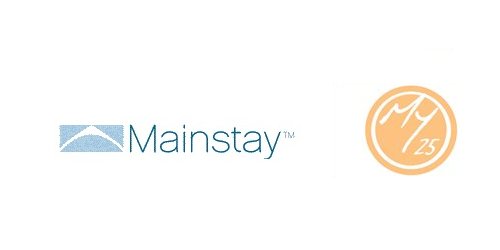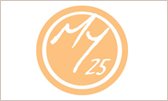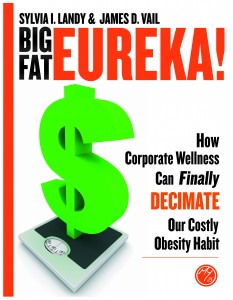
16 Feb Entrepreneuring: Sylvia of Mainstay and My25
Sylvia will be my third feature in my blog series of entrepreneurs that I admire. As I mentioned in a previous post, “I will be featuring entrepreneurs that I admire as a way to inspire my readers, my clients and anyone who wants to peek into the mind of someone whom I deem to be brilliant in his/her field. This is simultaneously my effort to practice what I preach as well as to (selfishly) inspire myself in the process.”
Sylvia was one of my first clients when I decided to turn my act into a solo show, and she’s been a pleasure to work with on a variety of projects. Sylvia and her husband Jim are about to publish a book outlining how to get America thin. They’ve been working in conjunction with the CDC and USDA to slim down the population and cut healthcare costs, and you can look for Big, Fat Eureka! soon both in bookstores and for the iPad and other tablet devices (I’m formatting the eBook!). With her years of experience manning her own successful businesses (yes, plural), Sylvia is a wealth of knowledge for both young entrepreneurs and seasoned vets.
1.) What was your first business that you started? What are you doing today? How are they similar, and how are they different?
Then: Adicon, Inc. Produced and distributed custom surgical kits to increase operating room turnover, maximize nursing time, control inventory and maximize patient care. This business was purchased by Fortune 500 Baxter International.
Now: Mainstay, Inc. Through custom designed products and services we develop the workforce supporting people with intellectual and developmental disabilities so nutrition and health improve.
Similar: Primary focus is to improve health while simultaneously saving money; nonprofit organizations occupy a majority of sales targets
Differences: Adicon was a manufacturing operation with a physical product in addition to being focused on sales generation; Mainstay primarily produces intellectual property and systems for education and training

2.) What’s the difference between working a small business out of your own home versus working a business that operates on a nationwide scale?
My business today operates on a nationwide scale, but I still do most of my work out of my home. By working out of my home I streamline my day and focus on the most critical priorities of the company.
3.) What is the most important lesson that you’ve learned regarding running a business?
1. A focus on profitability must be the dominating factor in your strategic thinking.
2. Focus on outcomes, not outputs.
3. If you hit a roadblock, strategically change the rules of the game.
4. Success is 1% inspiration and 99% perspiration.
5. Successful people do what unsuccessful people won’t do.
6. There are many ways to skin a cat. Your brain should hurt from thinking about how to maximize your business.
7. Sleep doesn’t matter as much as you think it does.
4.) What are the best and worst parts of running your own business?
Best: Flexibility, lack of red tape, upsides accrue to moi.
Worst: Risk all rests here; tough to get away from the business EVER; employees take up a lot of time
5.) How has your online presence shifted from your first business into what you are doing today?
My first business did not have an online presence. Can you imagine?
 6.) Do you have any advice for young entrepreneurs? Anything important that you wish you’d known sooner/are happy that you know now?
6.) Do you have any advice for young entrepreneurs? Anything important that you wish you’d known sooner/are happy that you know now?
1. Be sure your product/service is valued by your target customer at a level that affords both profitability and ongoing growth for the business. Will the customer pay what you are asking and is the pie big enough? You only need a slice of the pie, but a hearty enough one to make a go of it.
2. Cross all the t’s and dot all the i’s regarding incorporation, employee manuals, payroll reporting, add’l legalities, etc. If you don’t, these will assuredly become headaches and will occupy far more time than doing it right the first time. Keep meticulous and organized files regarding these matters.
3. Continually work to trim your costs. Lean, mean fighting machines are the most successful businesses unless you are cash rich like Microsoft.
4. Hire only when absolutely necessary. You are better off stretching and doing extra work than adding employees too early. Use subcontractors when you can. And think three times before hiring a friend; and then think about it again.
5. When someone asks you what you are looking to pay for a project, ask them what value (monetize it based on an increase to sales or a reduction in operating costs) they will be bringing to the organization so that you can do the payback analysis.
6. Knowing when to cut your losses is critical; businesses grow into their ultimate success and this means making hard decisions about what to keep and maximize and what to get rid of.
7.) What can we look forward to from Mainstay and My25 in the coming months/years?
We are broadening our emphasis from the social services markets to the mainstream corporate wellness arena in an effort to stem escalating obesity rates throughout the nation. We figured out how to solve one of our nation’s most pressing problems. Our book, Big, Fat Eureka! (available in second quarter, 2012), outlines the strategy.



